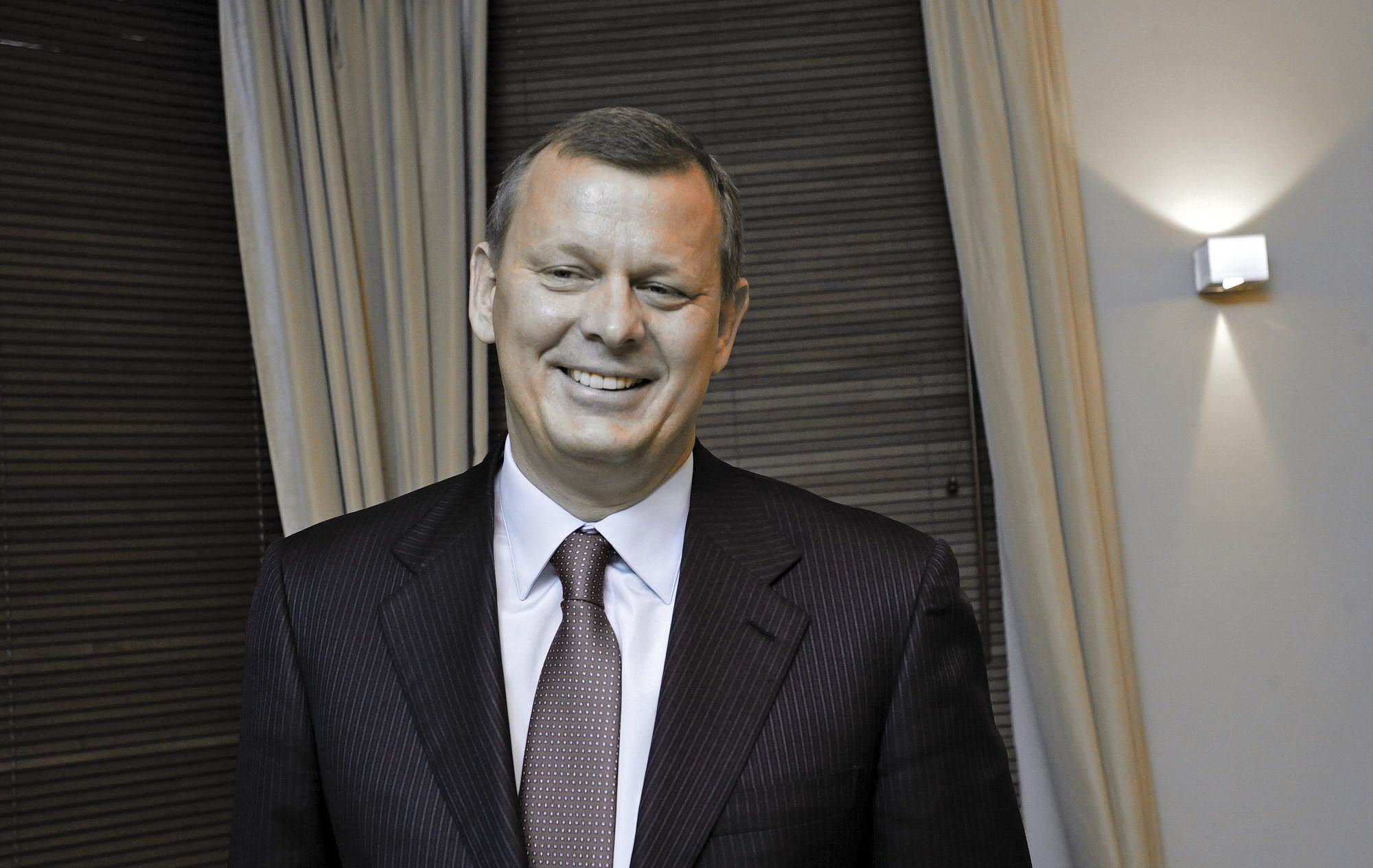Austria is home to a lot of Ukrainian money.
The cash comes in different forms — legitimate investment by Ukrainian business people, and ratlines for corrupt cash.
And, in many cases, the reality lies somewhere in between.
Five million euros
Nestled away in the Austrian Alps sits the historic Hotel Panhans in the town of Semmering, 75 kilometers to the southwest of Vienna.
A summer resort for Vienna cultural elites since its creation in 1888, the hotel fell into disrepair over the past few decades. By 2012, it was 3.5 million euros in debt, leading it to declare bankruptcy.
The hotel was then sold to an unlikely duo: far-right Austrian Freedom Party MP Thomas Schellenbacher and Ihor Palytsya, then an MP from the Our Ukraine party and now the head of Volyn Oblast’s regional council as a member of the Ukrop party.
Palytsya, who worked at state-owned but Ihor Kolomoisky-controlled Ukrnafta from 2003 to 2007, has often been linked with the Dnipro-born oligarch in the press.
Palytsya and Schellenbacher bought the Hotel Panhans in December 2012 for 5 million euros, according to Austrian media reports at the time.
Since then, however, the hotel has been embroiled in a number of issues.
The Viennese corruption prosecutor opened a probe into the purchase of the hotel, investigating allegations of money laundering in the purchase.
Schellenbacher, who is no longer in the Austrian parliament, is also reportedly under investigation as part of the matter.
The hotel failed to pay off some of its creditors in January 2017, while an October raid by the Austrian financial police uncovered dozens of illegal workers doing construction at the building.
“Details concerning the employment are still unclear, multiple foreign authorities are involved in the ongoing investigations,” said an Austrian Finance Ministry spokeswoman in an email confirming the raid.
Viktor Babushchak, Panhans’s director and a former Ukrnafta employee from Ivano-Frankivsk, told the Austrian press that the raid was focused on contractors, and not his company.
According to one Ukrainian diplomat, who requested anonymity due to a lack of authorization to speak publicly about the matter, the hotel’s troubles come down to a conflict with local government.
“They’re close to resolving the issue,” the source said.
Austrian media reported on Nov. 30 that the local government was negotiating with Babushchak to rent back the facilities.
The diplomat went on to argue that having Ukrainian ownership of Panhans could burnish Ukraine’s image in Austria. “It would be positive for Ukraine if, when people come to the hotel, everything is in three languages — English, German, and Ukrainian.”
Klyuyev radiation
Another Austria-focused oligarch issue has been the case of Activ Solar, a company owned by the Klyuyev brothers, Andriy and Serhiy, associates of former Ukrainian President Viktor Yanukovych.
That company produced solar panels at a Zaporizhia semiconductor plant, and also operated six solar farms in Crimea and the Odesa region, benefitting from increased cash flows thanks to Ukraine’s green tariff, implemented to stimulate investment in renewable energy.

Serhiy Klyuyev grins during an interview with the Kyiv Post in Kyiv on Feb. 19, 2014. Within a month, Klyuyev would be out of Ukraine, and his Vienna-based solar company, Activ Solar, would be headed towards bankruptcy. (Pavlo Podufalov)
The venture involved a number of prominent Austrians: Christian Dries, the owner of Diamond Aircraft, told Interfax that he had a “controlling stake” in the firm in 2012.
Activ Solar received millions of dollars in loans from two state-owned banks: Oschadbank and Ukreximbank.But after the 2014 EuroMaidan Revolution, the Klyuyev brothers fled to Russia, leaving the company 690 million euros in debt.
That launched years of litigation in Vienna, where the company was registered.
But then another party to the case swooped in. A state-owned Chinese firm called CNBM New Energy Engineering came in to seize Activ Solar’s assets in Ukraine, as a result of the Klyuyev brothers defaulting on loans from the company.
“Over the past few years, we gave huge loans for building these solar plants, counting on a stable investment policy in Ukraine,” CNBM Ukraine Country Chief Yongzhi Chen told Interfax last year. “However, these loans became unreturnable after the crisis in Ukraine, and so we by legal means took these solar plants as a form of paying off these loans.”
According to Olexiy Orzhel, head of the Ukrainian Renewable Energy Association, “the Chinese investors were only interested in the Ukrainian assets from Activ Solar.”
Orzhel added that Ukraine’s “green tariff” makes the plants profitable to operate.
As for the state-owned banks, there’s a slow-moving criminal investigation into deals conducted by the Klyuyev brothers’ defunct Activ Bank with Activ Solar. Attempts in Vienna to bring the money back have thus far been unsuccessful.
